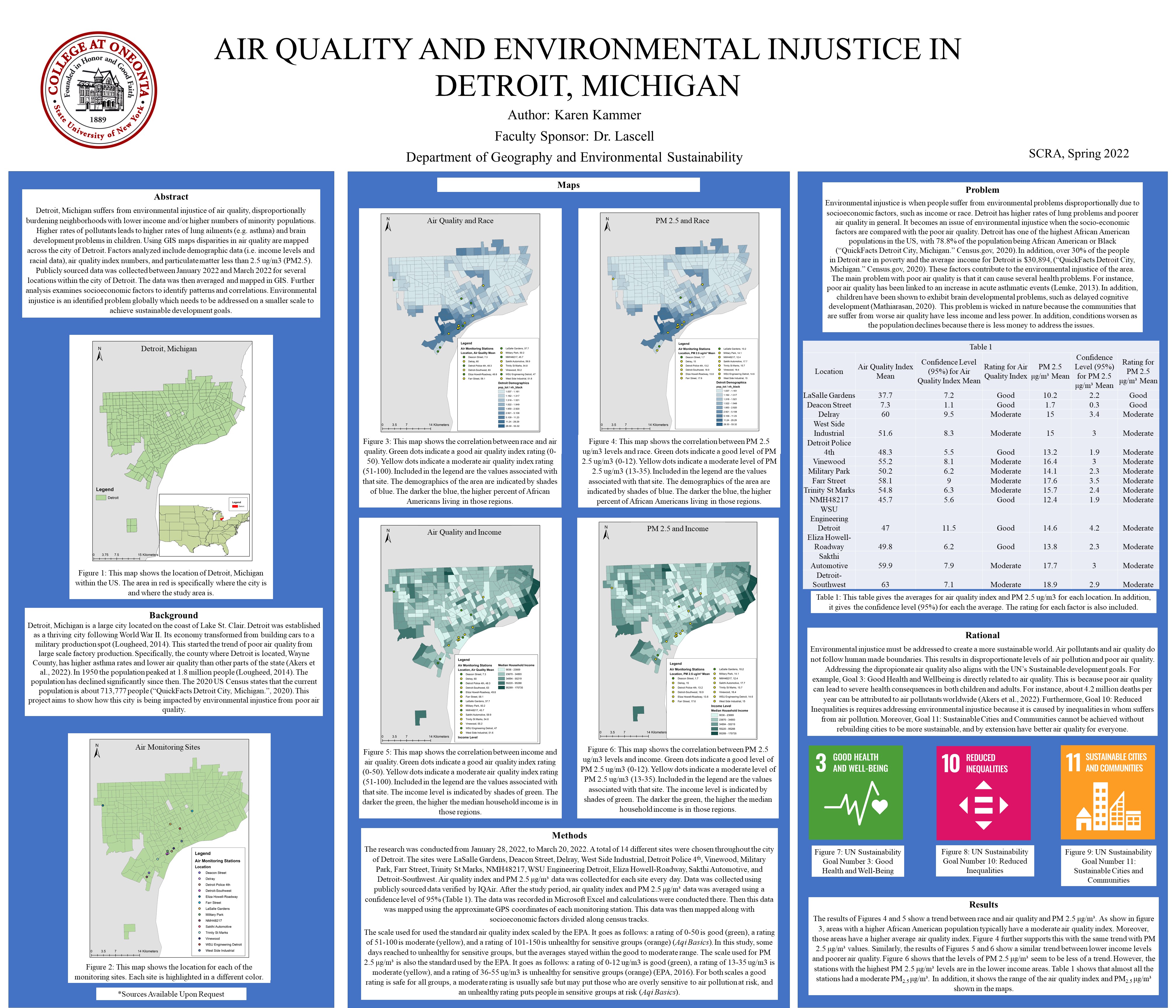Kammer
Abstract: Detroit, Michigan suffers from environmental injustice of air quality, disproportionally burdening neighborhoods with lower income and/or higher numbers of minority populations. Higher rates of pollutants leads to higher rates of lung ailments (e.g. asthma) and brain development problems in children. Using GIS maps disparities in air quality are mapped across the city of Detroit. Factors analyzed include demographic data (i.e. income levels and racial data), air quality index numbers, and particulate matter less than 2.5 ug/m3 (PM2.5). Publicly sourced data was collected between January 2022 and March 2022 for several locations within the city of Detroit. The data was then averaged and mapped in GIS. Further analysis examines socioeconomic factors to identify patterns and correlations. Environmental injustice is an identified problem globally which needs to be addressed on a smaller scale to achieve sustainable development goals.
 CLOSE SIDEBAR
CLOSE SIDEBAR
